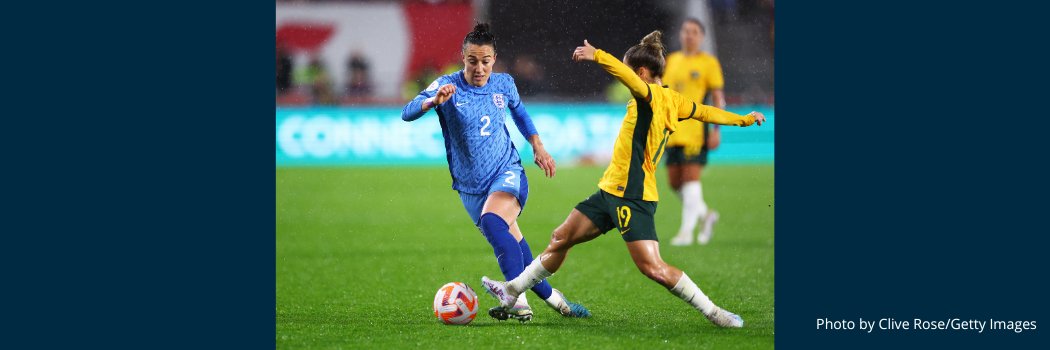Media coverage of women’s football on the rise

Media coverage of women’s football has substantially increased in the last few years with respectful coverage continuing to grow, according to a new study by our sport scientists.
Comparing the 2015 and 2019 FIFA Women’s World Cups, there was a sixfold increase in the number of articles in English print newspapers with the number of front pages going up from seven during the 2015 tournament to 22 in 2019.
Respectful coverage
The analysis also showed there were no articles in 2019 which sexualised women players and all coverage instead focused on the skill and competence of players and teams. There was also a reduction in the use of infantilizing language, such as the use of ‘girls’ or ‘ladies’.
Players and team skills were criticised in parts of coverage in line with the typical reporting of men’s football which could represent a shift towards greater equality, with women subject to respectful but honest evaluations.
The study, which is the first of its kind in the UK, looked at the quantity and quality of print media coverage in five newspapers and asked fans about their thoughts on the coverage.
World Cup
With just a couple of weeks until the FIFA Women’s World Cup kicks off, the study calls on media organisations and football governing bodies to work together to continue positive coverage all year round, not just for the duration of the World Cup.
The authors say continued profile could help to further advance gender equality in the sport, such as equal pay for women footballers and equal opportunities to play football.
Fans who were interviewed felt that increasing respectful coverage challenged sexist attitudes, leading to greater respect and appreciation for women’s football.
Gender equality
The researchers also call on organisations to ensure the same levels of high-quality, knowledgeable and respectful coverage for women’s and men’s sport. They would also like to see media outlets continue to tackle ‘thorny’ issues around gender inequality as this helps lobby for change amongst organisations with potential to improve conditions for women in sport.
The next stage of the research will look at media coverage of the 2023 FIFA Women’s World Cup, funded through a Collingwood College research internship.
Find out more
- You can read the research paper in the Sociology of Sport Journal.
- The research was led by Dr Stacey Pope from Durham University in collaboration with Dr Rachel Allison (Mississippi State University) and Kate Petty (Durham University/Leeds University).
- It was funded by the Arts and Humanities Research Council (AHRC) and a FIFA Research Scholarship awarded by the International Centre for Sports Studies (CIES) and FIFA.
- Our Department of Sport and Exercise Sciences is a welcoming, collegiate, and vibrant community. When you join the department, you'll receive a cutting-edge curriculum delivered by world-leading academics. We are ranked in the top 100 in the QS World University Rankings by Subject 2023. We are an outstanding place for excellence in teaching and research, and our students are highly employable.
- Feeling inspired? Visit our Sport and Exercise Sciences webpages to learn more about studying with us.


/prod01/prodbucket01/media/durham-university/departments-/sport-and-exercise-sciences/sport/86041.jpg)